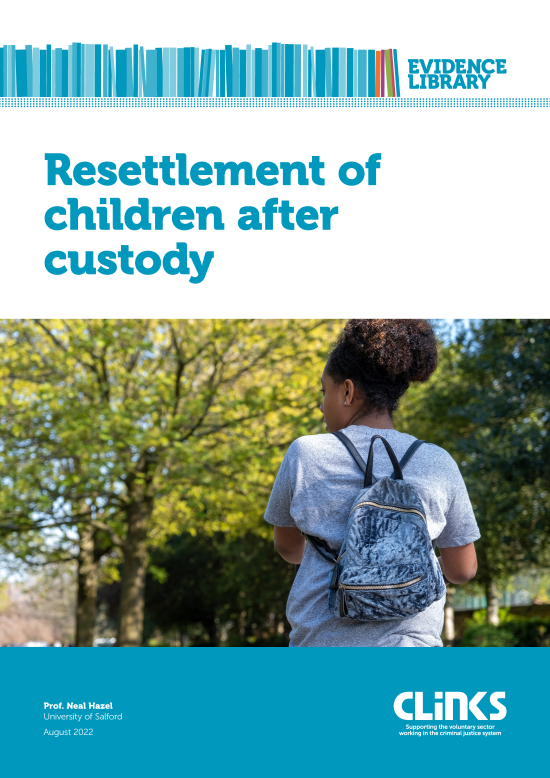
Resettlement of children after custody
Why read this evidence review?
In recent decades, policymakers have become increasingly aware that children being released from custody (known as ‘resettlement’) need effective professional support if they are to live a crime-free life. However, research and inspections of youth offending services has consistently shown that meeting children’s resettlement needs is challenging, which often leaves them without the necessary help and leads to poor outcomes. Nevertheless, there is now a considerable body of evidence for what effective resettlement support looks like and policy and practice guidance for how to implement it.
This review looks at:
• What is involved in children’s resettlement and why it is so important
• The challenges for supporting children after custody
• The essence of successful resettlement for a child, and the role of practitioners in it
• Effective sentence planning and case-management
• The five key characteristics for effective resettlement support
• The importance of practitioners being ‘identity-aware’
• The importance of diversity
• The recent policy and practice development of constructive resettlement.
An online evidence base for the voluntary sector working in the criminal justice system
This article forms part of a series from Clinks, created to develop a far-reaching and accessible evidence base covering the most common types of activity undertaken within the criminal justice system. There are two main aims of this online series:
- To increase the extent to which the voluntary sector bases its services on the available evidence base
- To encourage commissioners to award contracts to organisations delivering an evidence-based approach.
Each article has been written by a leading academic with particular expertise on the topic in question. The topics are selected by Clinks’ members as areas of priority interest. Clinks intends to build a comprehensive directory of the best evidence available across a wide range of criminal justice topics within the next three years (2020-2023). The online evidence base is co-ordinated by Russell Webster on behalf of Clinks.
Click here to find out more about the Evidence library.
Want to find out more about this topic?
Part of the 'A matter of fact: what the evidence tells us' series, to accompany our Evidence library, Clinks is giving you the chance to hear from the experts themselves. Professor Neal Hazel discusses and reflects upon the latest evidence on what effective resettlement support looks like for children after custody and takes questions from the audience.
Watch the video recording below: